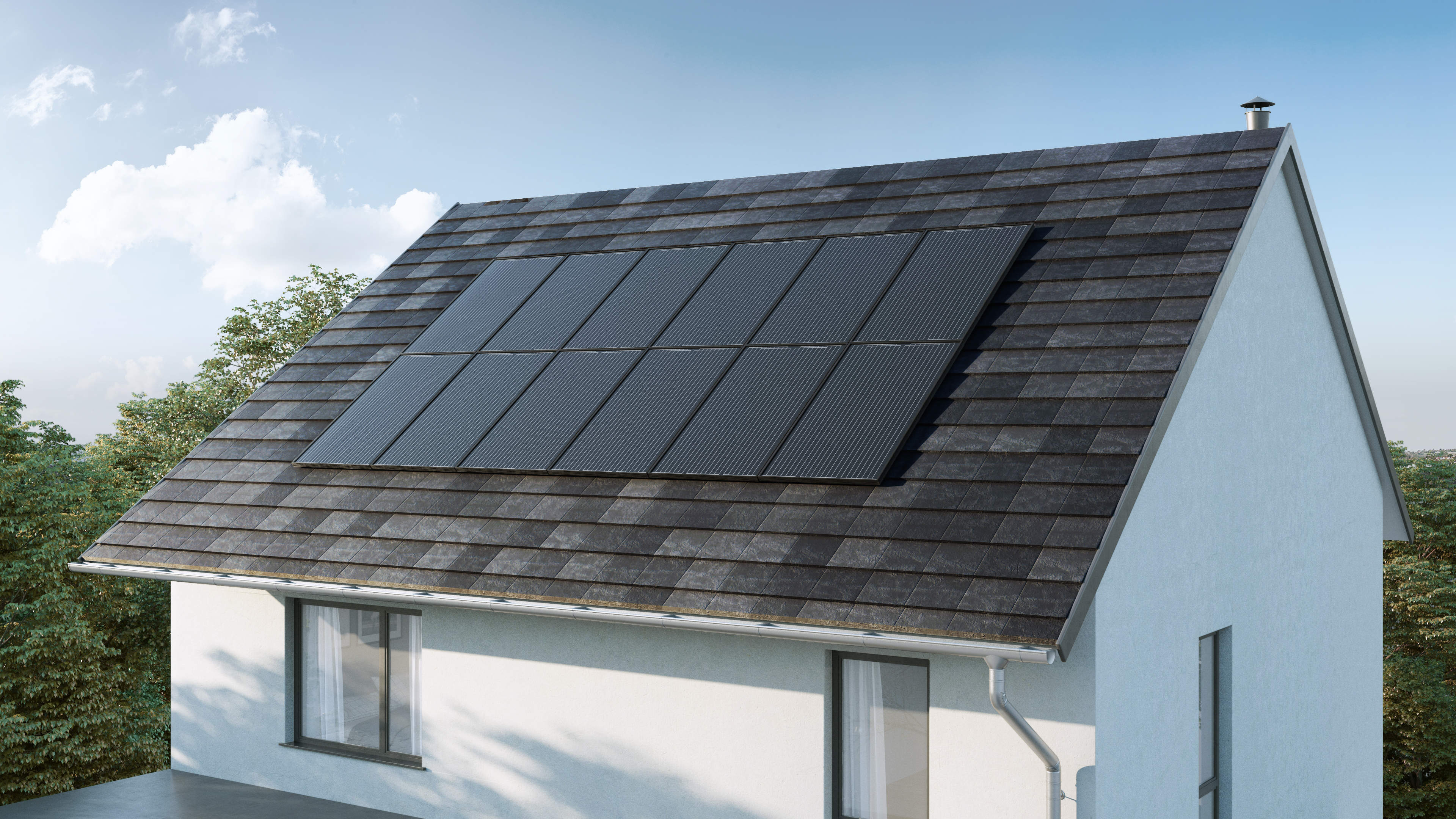
Nissan's solar energy storage system is now available in the UK the UK
Nissan is the second automaker to enter the home solar energy market with its solar storage system after Tesla released a similar package earlier this year
Nissan will enter the UK home energy market for the first time with the retail launch of a new solar power system.
The Nissan Energy Solar launch, announced this morning, follows partnerships with E.ON and Ovo Energy last year and has homeowners looking at a potential energy bill savings of 66%.
The Japanese car manufacturer’s package is said to be an all-in-one solution that combines solar panels with a battery to store the energy they generate, and a management system which allows residents to precisely control their energy consumption.
It can also be used to charge electric cars, which Nissan also develops.
Gareth Dunsmore, electric vehicle director for Nissan Europe, said: “Nissan Energy Solar enables UK homeowners to make significant savings on their household electricity bills, and become champions of sustainability and green technology.

“More than 880,000 people in the UK already use solar panels and this fully integrated solution brings a fresh opportunity to grow this number exponentially over the coming years.”
The popularity of Nissan’s electric vehicles will provide a healthy dose of consumer faith and give the company a boost in the competitive home solar energy market, which comprises well-established tech giants like Samsung and, more recently, Tesla.
However, its utility will need to stand on its own merits in order to survive. Following its official launch, we break down the key elements surrounding Nissan Energy Solar.
The features
Customers can pay £7,635 for six solar panels and a 4kWh battery, including installation and VAT.
Nissan offers the choice between a new battery and a “second life” pack which uses old cells from electric vehicles but can still function for the task in question.
It also provides a degree of flexibility, allowing customers to buy just the battery to add on to existing panels (£3,881), or just the solar panels on their own (£6,446).
The context
The average UK household consumes between 8.5 – 10kWh every day, far more than the 4.5kWh storage capacity of Nissan’s battery.
So it’s not a top-to-bottom solution for our energy needs, rather it’s designed to mitigate the costs of peak consumption times by storing energy throughout the day for use in the evening.
With the average UK household paying about £1,000 in energy bills per year, Nissan’s package is an investment for the long-term for those wanting tangible financial returns on their purchase.
The competition
Nissan’s announcement comes two years after Tesla acquired Solar City – a California-based company which specialises in solar energy – in the name of providing zero emission power generation options, according to CEO Elon Musk.

Customers can now purchase the Tesla clean energy stack, which includes roof panels, a home battery and a car.
Its power wall battery can store 13.5kWh and costs $5,900 (£4,367).
Samsung’s Energy Storage system comes with a 3.6kWh battery and costs £5,600.


